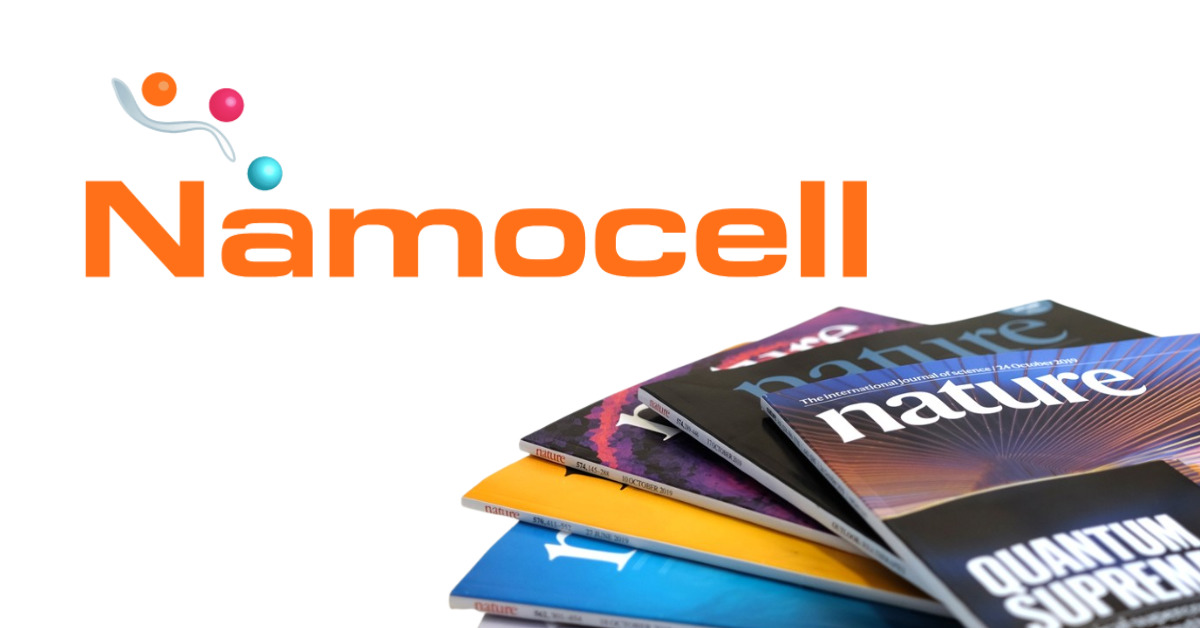|
|
MINNEAPOLIS, Nov. 17, 2022 — Bio-Techne Corporation (NASDAQ: TECH) today announced the publication of a single-cell cloning workflow study using the Namocell™ Single Cell Dispenser in Nature Protocols: Efficient and safe single-cell cloning of human pluripotent stem cells using the chroman 1, emricasan, polyamines, and transISRIB (CEPT) cocktail. This publication outlines a robust and scalable workflow for cloning human pluripotent stem cells (hPSCs) that maximizes the viability of the cells using the Namocell Single Cell Dispenser.
The use of the low-pressure microfluidic Namocell Single Cell Dispenser ensured gentle and rapid dispensing of single cells into 96- and 384-well plates, while the fast-acting CEPT cocktail minimized cellular stress and maintained cell structure and function immediately after single cell isolation. The relative ease, scalability and robustness of this workflow was identified to boost gene editing in hPSCs supporting a wide range of applications, such as cell line development (e.g., reporter and isogenic cell lines), disease modeling and regenerative medicine.
hPSCs are inherently sensitive cells a feature particularly evident when these cells are isolated and dispensed as single cells to establish clonal cell lines. The inefficiency in single cell cloning has created a major obstacle for using hPSCs in cell and gene therapy, which requires stable gene editing. This publication outlines a specific protocol for the clonal selection, single cell dispensing, and outgrowth of the hPSCs that leads to both high viability and genomic stability. The Namocell Single Cell Dispenser is highlighted as a key instrument in this workflow because of its ability to quickly and gently isolate individual cells into a 96- well or a 384-well plate.
Namocell, a Bio-Techne brand, is leading the way with fast and easy single cell sorting and dispensing systems that maintain the viability of the cells. Researchers have traditionally relied on flow cytometry sorting methods like FACS (Fluorescence-Activated Cell Sorting) or manual pipetting methods for single cell sorting and isolation. Most flow cytometry sorting methods inflict potentially damaging stress on cells, require large numbers of cell input, and are costly and difficult to operate. Similarly, manual pipetting methods are inefficient, unreliable and time-consuming. Namocell’s Single Cell Dispensers resolve these issues, providing a fast, easy-to-use and maintenance-free system that utilizes less than 2psi sorting pressure, preserving cell viability and integrity for downstream applications.
Namocell’s Single Cell Dispenser portfolio includes Pala™, a 2-laser system with up to 11 fluorescent detection channels and Hana™, a single-laser system with 2 fluorescent detection channels. Both instruments are capable of sorting and dispensing cells in a single step into a 96-well plate in 1 minute and a 384-well plate in 6 minutes, while being gentle to the cells and preserving cell viability and integrity. They are very easy to operate and require no calibration or flow cytometry experience. Namocell’s Single Cell Dispensers utilize singleuse cell cartridges to deliver cell sorting and dispensing capabilities, achieve high cell recovery and prevent cross-contamination. Learn more about Namocell’s Single Cell Dispenser at https://www.namocell.com.
“The Nature Protocols publication demonstrates the importance of a fast, gentle and easy-to-use system for iPSC clonal selection and isolation. We are excited to see the Namocell Single Cell Dispenser serving as an integral part of an effective and scalable workflow that will advance the use of iPSCs for cell and gene therapy,” said Will Geist, President of BioTechne’s Protein Sciences segment.
SOURCE Bio-Techne Corporation



















Tell Us What You Think!